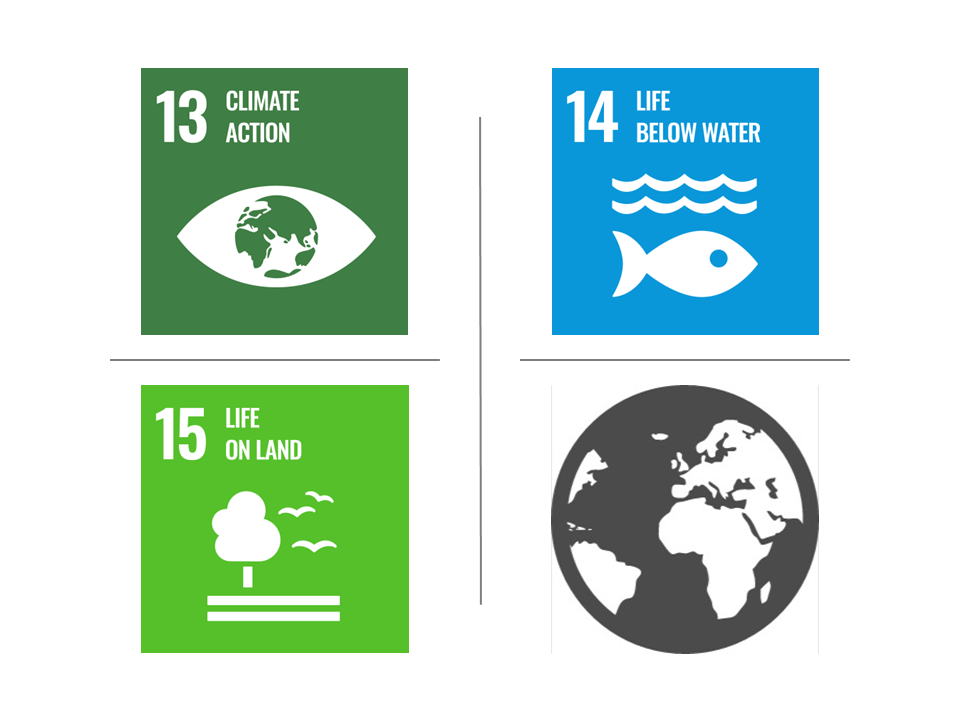Pick Up
1039. Environmental Performance Index

1039. Environmental Performance Index
Anthropogenic economic activities are driving climate change and biodiversity loss, and it is said that six of the nine areas of the Earth's limits and planetary boundaries have already been exceeded, with the seventh on the verge of being crossed. In response to a multi-factor crisis, a more pragmatic, data-driven approach to environmental policy is crucial.
The 2024 Environmental Performance Index (EPI), compiled by a team of scientists led by Yale University researchers, ranked 180 countries for their country-level policy performance on climate action and environmental and ecosystem conservation.
The world has failed to respond to the climate crisis.
Last year's first global assessment of progress towards the goals of the Paris Agreement was pessimistic, with greenhouse gas emissions continuing to rise despite record progress in renewable energy deployment. As the world moves into uncharted territory, there is a growing risk of reaching a critical point that could lead to irreversible changes to the Earth's climate system. The 2024 EPI introduced and assessed indicators to measure the progress made by countries in reducing greenhouse gas emissions, and found that while many countries have reduced greenhouse gas emissions, only five countries over the past decade have achieved the reduction trend required to achieve net zero emissions by 2050: Estonia, Finland, Greece, East Timor, and the United Kingdom. It is also uncertain whether these countries will maintain similar reduction efforts in the future. The pace of cuts in large economies is slow (in the United States) or on the rise (China, India, and Russia). In addition, with the exception of the United Kingdom, countries that were projected to achieve net zero by 2050 in their 2022 EPI report have also dropped out.
Newly refined biodiversity metrics
In recent years, biodiversity loss has become the most serious and irreversible environmental crisis following climate change. The biodiversity crisis, which is essential to the functioning of ecosystems, threatens human prosperity. In response, the 2024 EPI has introduced pilot indicators to measure the effectiveness and connectivity of conservation areas. The new index attempts to capture the expansion of conservation areas in line with the Kunming-Montreal Global Biodiversity Framework Goals, which aim to conserve 30% of land and sea by 2030. Pilot indicators have shown that while many countries have achieved their conservation goals, many conservation areas have failed to halt the loss of natural ecosystems. The 2024 EPI analysis demonstrates the importance of more stringent regulations for conservation areas, with adequate funding and partnerships with local communities.
Trade-offs in environmental performance
While the EPI score is positively correlated with the level of wealth in each country, it shows that wealth growth decreases gradually after a certain level. At each stage of economic development, some countries have high EPIs and others do not, and in fact, some of the world's poorest countries outperform the world's richest countries. In this light, it seems that indicators other than wealth, such as investment in human development, the rule of law, and the quality of regulation, are better predictors of environmental performance.
Through a number of indicators spanning a broad range of environmental issues, the 2024 EPI reveals critical trade-offs in different aspects of environmental performance, meaning that no country is fully aligned with sustainable development. Wealth enables investments such as safe and clean water, secure waste management, and the expansion of renewable energy, but it is also correlated with the environmental impact of material consumption. Many countries that scored high on ecosystem vitality indicators, such as pesticide- and fertilizer-derived pollution in agriculture, forest landscape integrity, and destructive fishing methods, were simply due to sluggish or underdeveloped economies. These trade-offs illustrate the importance of international cooperation and cultural change in developing societies. Developing countries should avoid repeating the mistakes of industrialization in developed countries, and developed countries should separate consumption from environmental destruction and help developing countries achieve sustainable development, biodiversity, and the preservation of the global commons for all humanity through leapfrogging.
Deep-seated gaps in a data-rich world
Environmental data is now available at an unprecedented pace, including the latest developments in machine learning and remediation, and this is now reflected in the 2024 EPI. Despite this, there are still gaps in the data that are important for policy decision-making. Gaps in standardized data on waste, particularly in developing countries, are hampering policy responses to the plastic pollution crisis and the promotion of the circular economy. Another challenge is reliable data on wetlands, grasslands, and other critical ecosystems that are difficult to analyze and evaluate.
Refeerence
Block, S., Emerson, J. W., Esty, D. C., de Sherbinin, A., Wendling, Z. A., et al. (2024). 2024 Environmental Performance Index. New Haven, CT: Yale Center for Environmental Law & Policy. epi.yale.edu https://epi.yale.edu/
Contributor: IIYAMA Miyuki, Information Program
